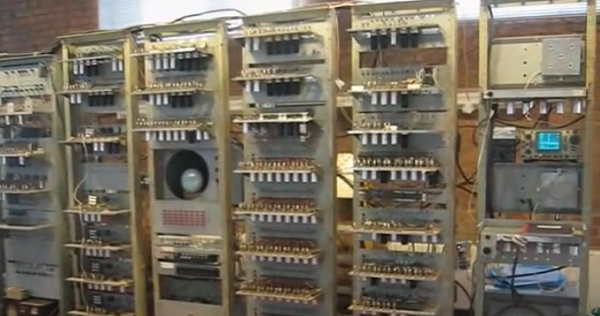
In one of most important birthday celebrations honoring an integral innovative bridge in advancing computer technology, “The Manchester Baby” officially reached the seven decade milestone, and the entire spectrum of modern digital devices can thank their existence for the concise machine and its human operators.
The BBC News shares the history of how a team of undergrads and a mathematical genius in post-World War II Britain, transformed a decrepit university campus building into a working laboratory and etched their names in history by constructing the first programmable computer in graduating from an arrangement of vacuum tubes. The success by the team in successfully writing a stored program and the execution of the code by the machine in 1948, led directly to the establishment of a commercialized digital market and paved the way for the heavy hitting pioneers such as IBM, and the paradigm shift from the nuclear age to the computer age.
Two of the original programmers of what locals simply refer to as “The Baby”, are still living and at 90 years young, have witnessed the fruits of their labor and innovation in the completion of game changing project during the chaotic and volatile transitional years in the aftermath the successful, but taxing defense of Northern Europe from tyrannical Fascism. To put the accomplishment in modern perspective, the machine was workable in processing 1024 bytes or storing roughly 200 words of text. In Twitterease, a user would be thrilled to know that the 1024 characters would provide almost 4 times as much opportunity as the current available limit for incessant rambling or ranting in sharing a Tweet. This article would require roughly twice the computing power of “The Baby” to electronically store.
As the ascension of technology continues to translate physical space of the real world into compact digital code, the fact that “The Baby” needed an entire room to basically store a couple stanzas of a sonnet, is a testament to the astonishing modern virtual reality experience, threatening to emulate life itself in an articulated construct.
Grab the portable device from the kitchen counter, and just take a moment to reflect on what the near future holds in an perpetually changing technocratic culture. How terrifying it may be if “The Baby” reaches adulthood.
Read the BBC News story here.
